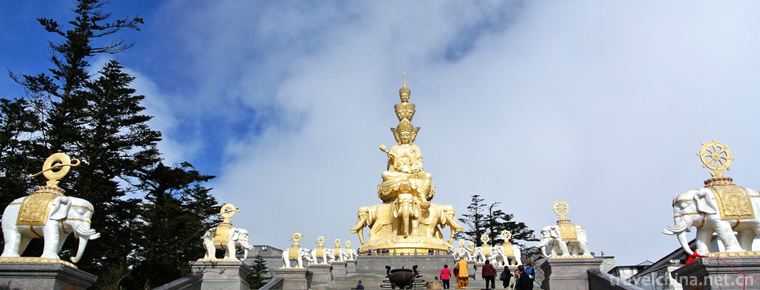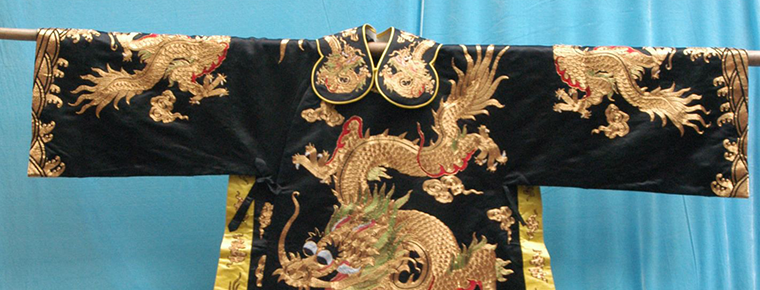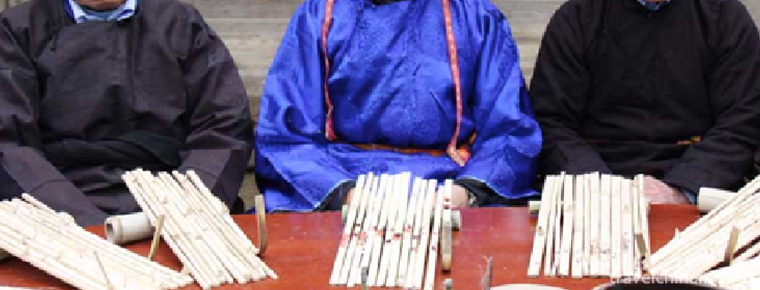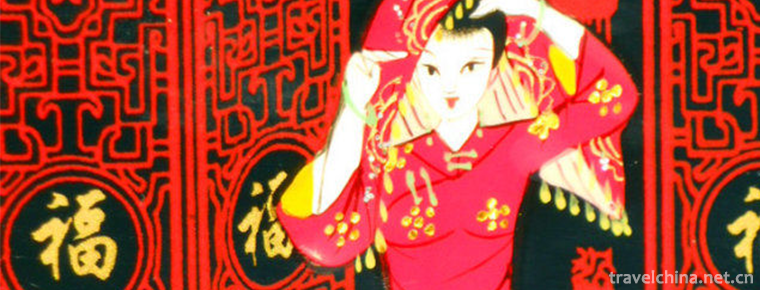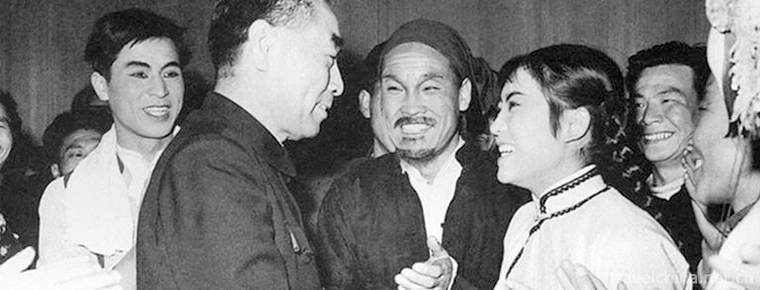Liao Zhais folk songs
Liao Zhais folk songs
The spreading area of Liaozhai slang mainly distributes in Zibo City, Shandong Province. The Pu family and its descendants are the main inheritors. Liaozhai slang is a unique traditional folk music literary genre formed by Pu Songling, a great writer in the early Qing Dynasty, matching his own singing books with the popular tunes of the time. It is a kind of rap and drama written by Pu Songling in Zichuan dialect. Its form is similar to today's Piano Book rap and local opera. The tune used is sung by borrowing dozens of kinds of music (filling in lyrics) circulated at that time. (Since there is no music in the works, only oral transmission, so far, only a dozen records have been compiled by recording). Because Pu Songling's Zhai is called "Liaozhai", it is called "Liaozhai slang" and also known as "Pu Songling slang".
On May 20, 2006, Liaozhai slang was approved by the State Council to be included in the first batch of national intangible cultural heritage list.
historical origin
Pu Songling (1640-1715) was a Qing Dynasty novelist, with the character of Liuxian, a swordsman, the name of Liuquan Jushi, and Zichuan (Zibo, Shandong Province today). Born in a declining landlord family, Shuxiang family, but the fame is not obvious. Father Pu abandoned studying and doing business, but read the history of Confucian classics extensively and learned a lot. When Pu Songling was 19 years old, he took the first place in counties, prefectures and Taoist schools. He had a good literary name, but he failed many times in the future. When he was 20 years old, he tied up with fellow fellow students Wang Luzhan, Li Ximei and Zhang Duqing to form the Yunzhong Poetry Society. He was invited to study at Li Ximei's home because his family was poor. At the age of 31-32, at the invitation of Baoyingzhi County and Sun Hui, a good friend of Tongyi Jinshi, he went to Baoying County, Yangzhou Prefecture, Jiangsu Province as a curtain guest. This is the only time in his life that he has traveled south from his hometown, which is of great significance to his creation. He had a deep experience of the natural landscapes, customs and customs of the South, corruption in official circles and the suffering of the people. He also made friends with some southern lower-class singers. After returning to the north, he lived by setting up libraries at the Ji Gentlemen's house. The owner's library was rich, which enabled him to hunt extensively. At the age of 71, he withdrew his account and returned home, living a life of drinking, poetry and leisure entertainment. In his lifetime, he was keen on imperial examination, but failed to achieve it. At the age of 72, he made up one year-old Gongsheng student, so he had a deep experience of the unreasonable imperial examination system. In addition, since childhood, I like folk literature, collect widely the strange stories of ghosts and ghosts, absorb creative nutrition, melt into my own life experience, and create an outstanding collection of classical Chinese short stories "Strange Stories from Liaozhai". With the fantasy story of the flower demon and fox charm, it reflects the real life and places the author's ideal on it. In addition to Strange Tales from Liaozhai, there are four volumes of anthology and six volumes of poetry; miscellaneous writings such as Provincial Sayings and Huaijinglu; three kinds of operas and 14 kinds of popular slang.
Zichuan is one of the important districts of folk songs in Ming and Qing Dynasties. Pu Songling's Xipu Bijia, who has been sitting in the hall for more than 30 years, is a noble family, and has always had the tradition of compiling and singing slang, which has prepared Pu Songling with excellent social atmosphere and conditions for compiling slang stories. Pu Songling set the experience of his life, gathering the essence of the Qing folk song, and taking the Quju of the various imperial tunes and the tunes of the north and South Song, and completed the creation of 15 pieces of the folk song. Whether in literature or music, these slang songs are of great value. Liaozhai's folk songs include Playing with Children, Yue'e Lang, Pink Lotus and Overlapped Bridge.
In terms of writing time, except for the shorter ones written in the middle age of the author, the rest are mostly written in the late years. From the point of view of writing motivation, the author is to "break through the mystery of the village mediocrity, and awaken the dream of the city", in order to persuade the good and punish the evil, change customs. The direct motive of most works written in Xipu is to please the widow's wife, Mrs. Wang (Wang Yuyang's aunt).
From the point of writing form, Liaozhai slang has experienced a process of development from short stories to long stories, and a process of evolution from simple piano-book rap to stage performance, such as the final completion of "The Curse of Jealousy", "The Hardship Song" and "The Story of the Wall". The author's thoughts also changed from self-pity and self-congratulation to the highest realm of common sorrow and joy.
Representative works
From the content of the works, half of them are adapted from Liaozhai Zhiyi: Aunt's Song, Coral , Mercy Song, Zhang Cheng, Nightmare Turning, Envy Curse, Jiangcheng, Rich Fairy and Hardship Song, Zhang Hongjian, Hansen Song, Shang Sanguan and Xi Fangping. Most of the works reflect the family ethical relations such as mother-in-law (Aunt-in-law song), husband and wife (envy curse), stepmother and son, brother (mercy song), father and son (wallflower), neighborhood relations (such as nightmare turning), social injustice (such as "rich and noble fairies", "tribulation song", "cold song"), until the court's absurdity. (e.g. Supplementary Lucky Cloud Opera). Except for a few games, the author's salvation and conscience are immersed in them. Some works are still full of enlightenment.
Inheritance significance
Liaozhai slang vividly reflects the people's life in the late feudal era, which is popular with the masses. It has long been spread in contemporary society and has become a unique form of mass art in Shandong. The unique charm of Liaozhai slang opera has influenced the development of other sisters'art. Taking opera as an example, the adapted scripts of slang opera stories include Wuyin opera, Liuzi opera, Sichuan opera, Beijing opera, Qin opera and Hebei Bangzi.
The existing 15 kinds of Liaozhai slang manuscripts (the original works lost) have been sorted out and published. There are more than 50 pieces of original Qupai left. In 1962, more than 10 pieces were collected, and more than 30 pieces were searched and translated from ancient books and literature. There are still some missing Qupai to be found. The people who can sing slang are getting old, and the researchers of slang are few, so it is necessary to rescue and protect them.
The state attaches great importance to the protection of intangible cultural heritage. On May 20, 2006, Liaozhai slang was approved by the State Council to be included in the first batch of national intangible cultural heritage list.

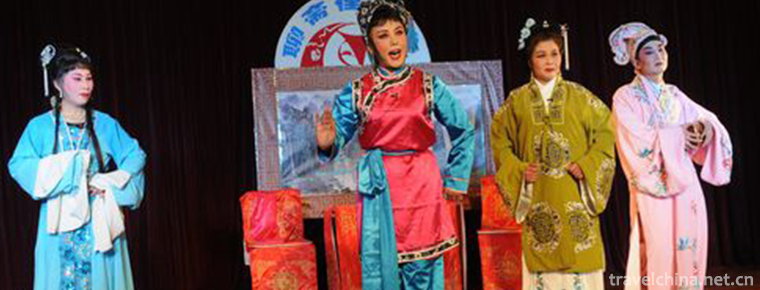
-
Mount Emei
Mount Emei is located in Mount Emei, Leshan City, Sichuan Province, China..
Views: 371 Time 2018-10-13 -
Aerhchin Mountains
Altyn Tagh is a mountain range in southeastern the Xinjiang Uygur Autonomous Region, China. The eastern end extends to the two provinces of Qinghai and Gansu.
Views: 253 Time 2018-11-01 -
Yandang Mountain Scenic Spot
Yandang Mountain, the first batch of national key scenic spots, has the titles of "Sanitary Mountain, Safe Mountain, Civilized Mountain", National Civilized Scenic Spot, National AAAAA Touri.
Views: 190 Time 2018-12-07 -
Shennong Mountain Scenic Area
Shennong Mountain Scenic Area is a national AAAAA-level tourist area, located in Zhaozhai Village, Ziling Town, Qinyang City, Jiaozuo City, Henan Province, 25 kilometers northwest of the Taihang Mount.
Views: 212 Time 2018-12-17 -
Qiankun Bay Scenic Area
Qian Kun Wan Scenic Area is located in Qian Kun Wan Town, Yanchuan County, Yan'an City, Shaanxi Province. It faces the Yellow River to the East and Yonghe County, Shanxi Province.
Views: 192 Time 2018-12-22 -
Legend of Biashla
Biashraze, also known as Ashraze, is the most representative Bimo Master of the Yi nationality. The legend of Ashraze has become divine through oral transmission and artistic processing of language.
Views: 129 Time 2019-04-04 -
Drama Costume and Opera Production Skills
Drama costume and costume production skills, local traditional handicraft in Suzhou City, Jiangsu Province, one of the national intangible cultural heritage..
Views: 96 Time 2019-05-08 -
Miao Jia Li
Jiali, Miao is called "jaxlil". In the context of Miao language, "Jiali" is a synthesis of the semantics of "philosophy", "truth", "reason" and ".
Views: 160 Time 2019-06-05 -
Pingyao Pushing Lacquerware Decoration Techniques
Pingyao polishing lacquerware decoration technology originated in Pingyao County, central Shanxi Province, and spread to the vast northern region. Lacquerware made with this technique has been well kn.
Views: 142 Time 2019-06-09 -
a type of Shaanxi Opera popular in the Weinan Dali region
Bowl-bowl tune is one of the local operas in Shaanxi Province, also known as "lamp-bowl tune" and "Ruan'er tune". The former is named for the main rhythm of the small copper bowl a.
Views: 432 Time 2019-06-25 -
Explanation service of Chengdu Giant Panda Base
Chengdu Research Base of giant panda breeding has set up an explanation service station at the entrance to provide high-quality explanation service for tourists who have a better understanding of giant panda knowledge. At present, there are 11 full-time commentators in the.
Views: 384 Time 2020-12-13 -
Leshan social service
By the end of 2018, there were 13 social welfare homes in Leshan City with 2908 beds and 2182 people in the hospital. The sales of social welfare lottery tickets totaled 385.69 million yuan, raised 109.75 million yuan of welfare lottery public welfare fund,.
Views: 163 Time 2020-12-17
